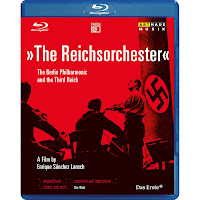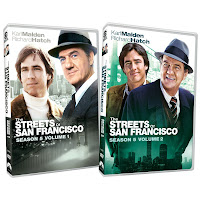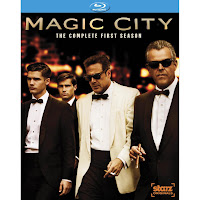the traveler's resource guide to festivals & films
a FestivalTravelNetwork.com site
part of Insider Media llc.
Film and the Arts
November '12 Digital Week I
- Details
- Parent Category: Film and the Arts
- Category: Reviews
- Published on Monday, 05 November 2012 05:00
- Written by Kevin Filipski
CD Reviews: Great Vocal Stars Complied on New Releases
- Details
- Parent Category: Film and the Arts
- Category: Reviews
- Published on Sunday, 04 November 2012 14:03
- Written by Lloyd Carroll
 Art Garfunkel
Art Garfunkel
The Singer
(Columbia/Legacy)
Art Garfunkel and I have two things in common. We’re both alums of Forest Hills High School and we got our undergraduate degrees at Columbia University. Of course, he can sing a lot better that I. My ego can accept that because his ethereal voice is one of the best that has ever graced a recording. It’s not hubris that this just-released, 34-song, two CD Garfunkel career retrospective is titled The Singer.
You can’t think of Art without thinking about his childhood buddy from Kew Garden Hills and on and off again performing partner, Paul Simon.
While Artie has had a far longer career as a solo artist than he did as half of Simon & Garfunkel, there are plenty of original S&G tunes here including the well-known “Sound of Silence,” “Scarborough Fair” and “Bridge Over Troubled Water,” as well as more obscure tracks as “For Emily, Wherever I May Find Her,” “Kathy’s Song,” “So Long, Frank Lloyd Wright” and April Come, She Will.”
Regrettably the dour 1975 hit, “My Little Town,” in which Paul Simon painted Queens as a dreary place populated by people with small minds is included here as well.
Few vocalists can consistently hit the upper octaves of the treble clef without breaking into falsetto. Garfunkel has always managed to pull it off as evidenced by “Breakaway,” “A Heart in New York,” and “99 Miles from LA” -- a song co-written by Hal David who passed away this past September at the age of 91.
It’s somewhat ironic that Artie chose to omit his three biggest solo hits, the overly dramatic “For All I Know,” the lighthearted “I Shall Sing,” and the heartbreaking “Second Avenue.” He did include a samba version of “Some Enchanted Evening.” While it is pleasant to listen to, it can’t hold a candle to the definitive Jay & the Americans’ 1965 hit rendition which truly brought the South Pacific standard to life and to a younger audience.
The Beach BoysFifty Big Ones
(Capitol)
One of the happier concert stories this past summer was the Beach Boys’ 50th anniversary tour in which the surviving key members, Brian Wilson, Mike Love, Al Jardine, Bruce Johnston and David Marks, proved that age is no barrier to rock & roll. The guys sounded great and were on stage for well over two hours nightly, something most younger bands can’t even endure.
Fifty Big Ones is a clever play on the title of the 1976 Beach Boys album 15 Big Ones in which the guys celebrated their 15th anniversary with both original tunes and covers of their favorite rock songs. Carl Wilson’s vocal take on the Righteous Brothers’ “Just Once in My Life” was worth the price of the LP alone.
If you’ve been looking for the definitive Beach Boys’ greatest hits album, wait no longer. Name a Beach Boys hit and it’s here on this two-disc, 50-song compilation.
Two songs recorded in 1965, “Please Let Me Wonder,” the best song ever written about having a crush on someone, and “Kiss Me, Baby” a tune about the pain of having a blowout argument with your girlfriend and hoping to make up ASAP, finally take their rightful place on a Beach Boys “best of” album alongside “Fun, Fun, Fun,” “California Girls,” “Good Vibrations,” I Get Around,” “Wouldn’t It Be Nice” and the like.
This year’s Beach Boys comeback tune, “That’s Why God Made The Radio,” is here as well. Regrettably their terrific 1986 cover of the Mamas & Papas’ “California Dreaming,” which received substantial airplay on both radio and MTV back in the day, is not here.
Donny Hathaway
Live +In Performance
(Shout Factory)
Much as George “Superman” Reeves’ death in 1959 has remained a mystery all these years, so has rhythm & blues singer Donny Hathaway’s fall from his hotel room at the Essex House in 1979.
Hathaway was best known to pop music fans for a pair of hit duets with Roberta Flack -- 1972’s “Where Is The Love?” and 1978's romantic “The Closer I Get To You.”
While he never achieved the chart success as a solo artist that he did as a singing partner with Ms. Flack, Hathaway was idolized by such legends as Stevie Wonder and Marvin Gaye for both his expressive vocalizing and composing abilities.
This twin-disc live album of Hathaway performing his interpretations of Carole King’s “You’ve Got A Friend,” Marvin Gaye’s “What’s Going On,” Leon Russell’s “A Song For You,” and “I’ll Love You More Than You’ll Ever Know” written by Blood, Sweat & Tears’ founding member Al Kooper combined with his own songs, “The Ghetto” and “We Need You Right Now,” shows why he was lionized and still very much missed.
October '12 Digital Week IV
- Details
- Parent Category: Film and the Arts
- Category: Reviews
- Published on Sunday, 28 October 2012 10:00
- Written by Kevin Filipski
Theater Roundup: "Virginia Woolf" on Bway; "Freedom of City," "Modern Terrorism," Heresy" off-Bway
- Details
- Parent Category: Film and the Arts
- Category: Reviews
- Published on Saturday, 27 October 2012 20:00
- Written by Kevin Filipski
Who’s Afraid of Virginia Woolf
Written by Edward Albee; directed by Pam Mackinnon
Performances through February 24, 2013
The Freedom of the City
Written by Brian Friel; directed by Ciaran O’Reilly
Performances through November 25, 2012
Modern Terrorism, or: They Who Want to Kill and How We Learn to Love Them
Written by Jon Kern; directed by Peter DeBois
Performances through November 4, 2012
Heresy
Written by A. R. Gurney; directed by Jim Simpson
Performances through November 4, 2012
Who’s Afraid of Virginia Woolf, in an incendiary new staging by Pam Mackinnon  transplanted from Chicago to Broadway, proves that Edward Albee was once a vital, important playwright—which is hard to believe, considering the substandard Albee plays we’ve been seeing in New York in recent years, from The Goat or Who Is Sylvia and Me Myself and I to this year’s disastrous return of The Lady from Dubuque.
transplanted from Chicago to Broadway, proves that Edward Albee was once a vital, important playwright—which is hard to believe, considering the substandard Albee plays we’ve been seeing in New York in recent years, from The Goat or Who Is Sylvia and Me Myself and I to this year’s disastrous return of The Lady from Dubuque.
No matter: 1962’s Virginia Woolf, is by far Albee’s best play. It recounts one very long night for two couples in a small university town at the house of longtime history professor George and wife (and the college president’s daughter) Martha, as new and young professor Nick and wife Honey arrive for drinks and talk that turns nasty.
Sure, there are the familiar Albee tropes: the metaphysical grandstanding, unnecessary foul language, parsing of words and phrases, and surrealist touches, but Albee smartly keeping his high-wire dramatics going until an anti-climactic final scene. But since these couples—led by the endlessly squabbling, duking-it-out George and Martha—are multi-dimensional characters we are actually interested in, Virginia Woolf remains an emotionally charged three hours in the theater.
In a play about how words can hurt mercilessly, Mackinnon’s directing re-charges the physical confrontations into something that adds immeasurably to the conflicts between and among the couples. Although Todd Rosenthal’s set is a bit too gorgeously appointed for a mere professor’s house, it certainly provides a superbly-detailed ring for these figurative boxing matches to play out on. And what acting!
The four Chicago-based actors give flawless performances. Madison Dirks makes a perfectly annoying Nick and Carrie Coon—except for her overdone drunken scenes—is a perfectly weak Honey. Amy Morton, whose towering acting in August: Osage County was an indelible theater moment, plays Martha with remarkable nuance, making believable both her barbs at George and her underlying sadness.
Pacing Morton word for word and blow by blow is Tracy Letts: although I’ve admired his plays August: Osage County, Bug and Killer Joe—and he’s been onstage in Chicago for years, it’s my first time seeing him. And he’s a revelation: his George gives as good as he gets, making a much better sparring partner for Martha than an ineffectual Bill Irwin did for an overbearing Kathleen Turner in the dodgy 2005 Broadway revival.
 Brian Friel’s The Freedom of the City—which reports on the deaths of a trio of Irish locals at the hands of the English—was written in 1973, following the killing of several people on what’s known as “Bloody Sunday,” which Friel alludes to in his most explicitly political play.
Brian Friel’s The Freedom of the City—which reports on the deaths of a trio of Irish locals at the hands of the English—was written in 1973, following the killing of several people on what’s known as “Bloody Sunday,” which Friel alludes to in his most explicitly political play.
Friel is unapologetically didactic, humanizing his martyred trio and letting the British officials act like inhumane monsters, which may be truthful but makes for lopsided drama. Still, Friel’s poetic flair takes flight in several monologues that personalize an otherwise dispassionate tract. Ciaran O’Reilly’s straightforward directing, a solid group of actors, and Charlie Corcoran’s imaginative set richly transform the Irish Rep’s tiny stage into the volatile streets of Derry.
Two plays about our uncertain post-9/11 world are little more than Saturday Night Live skits stretched too thin. Jon Kern’s Modern Terrorism: Or They Who Want to Kills Us and How We Learn to Love Them (an obvious allusion to Stanley Kubrick’s classic satire Dr. Strangelove: or How I Learned to Stop Worrying and Love the Bomb) finds dark humor in three inept Middle East conspirators plotting to blow up the Empire State Building.
Skillful comic acting by Utkarsh Ambudkar, William Jackson Harper and Nitya Vidyasagar as the would-be bad guys and gal is blunted by Steven Boyer’s broad Jack Black impression as a doofus neighbor who stumbles upon them. Peter DuBois’ direction can’t give shape to Kern’s mostly misfiring comedy.
Old pro A.R. Gurney alternates between affectionate comedies of manners and screeds against former President Bush’s wartime bungling and overreaching: his Heresy is an example of the latter. In the near-future in what’s now called New America, a prefect named Pontius Pilate is visited by old friends Joseph and Mary, upset that their son Chris (without the final “T”) has been thrown in jail for no apparent reason.
Strained Biblical parallels aside, Gurney and director Jim Simpson keep things percolating amusingly until this paper-thin satire is resolved in 75 painless minutes. An accomplished cast led by Reg E. Cathey, Annette O’Toole and Karen Ziemba polishes off Gurney’s one-liners with comic zest, putting off the playwright’s worries about a future police state to a later date.
Who’s Afraid of Virginia Woolf
Booth Theatre, 222 West 45th Street, New York, NY
http://virginiawoolfbroadway.com
The Freedom of the City
Irish Repertory Theatre, 136 West 22nd Street, New York, NY
Modern Terrorism, or: They Who Want to Kill and How We Learn to Love Them
Second Stage Theatre, 307 West 43rd Street, New York, NY
Heresy
Flea Theatre, 41 White Street, New York, NY
More Articles...
Newsletter Sign Up






































